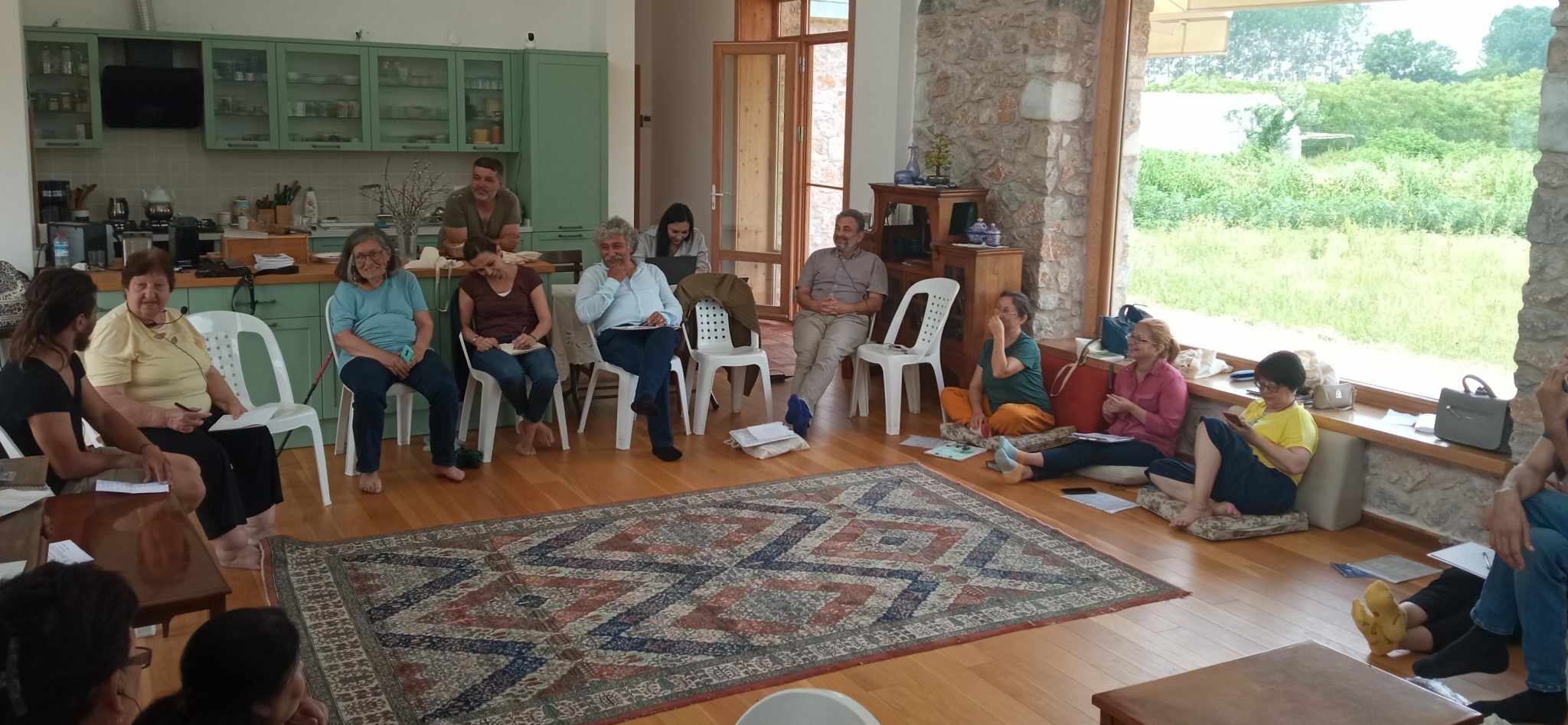
Schola Campesina est une école internationale d’agroécologie ayant pour but de renforcer les organisations de producteurs dans leurs luttes pour la souveraineté alimentaire à travers le partage et la valorisation de connaissances.
The 2015 Nyéléni International Forum for Agroecology is the conceptual base of Schola Campesina. We work at implementing its principles and action plan. The Nyéléni Declaration principles represent the starting point of our training and participatory action research activities.
Plus spécifiquement, Schola Campesina facilite le partage de connaissances parmi ses organisations partenaires (petits producteurs, académiques, ONG’s), entre autres sur le thème de la gouvernance mondiale de l’agriculture et de l’alimentation afin d’améliorer leur participation au sein des institutions de gouvernance mondiale (FAO, CSA, etc.) et défendre la souveraineté alimentaire et l’agroécologie au niveau international.
Schola Campesina est fondée sur le Forum international sur l’Agroécologie de Nyéléni (2015) ainsi que sur les principes de Dialogo de saberes et de l’Education populaire.
Schola Campesina APS est une association de droit italien, créée en 2018 (active depuis 2017), dont le siège se trouve dans le village de Gallese, situé au coeur du Biodistrict della Via Amerina e delle Forre (Viterbo, Italie). L’association est composée de familles d’agriculteurs du Biodistrict -affirmant ainsi son lien étroit avec son territoire- ainsi que de deux staff. Nous établissons par ailleurs de nombreux partenariats avec des organisation de petits producteurs et des ONG à travers le monde s’identifiant avec le mouvement pour la souveraineté alimenataire et avec la Déclaration de Nyéléni sur l’agroécologie.
“The diverse knowledge and ways of knowing of our peoples are fundamental to Agroecology. We develop our ways of knowing through dialogue among them (diálogo de saberes). Our learning processes are horizontal and peer-to-peer, based on popular education. They take place in our own training centers and territories (farmers teach farmers, fishers teach fishers, etc.), and are also intergenerational, with exchange of knowledge between youth and elders. Agroecology is developed through our own innovation, research, and crop and livestock selection and breeding“
How do we operate?
- We train organisations of food producers (peasant farmers, fisher folk, indigenous peoples, farmers, landless …)
- Our starting point is the local level, so that our position is deeply grounded and thereby enhanced, in order to influence change on the global level.
- Our work is constantly in a bi-directional sense: we follow global processes in order to influence them and, at the same time, we apply global outputs at the local level, otherwise, we will not succeed one way or the other.
- Schola Campesina is based on the existing “Agroecology schools” of LVC specifically regarding the horizontal pedagogy “Campesino a campesino” and the principle of “Dialogo de Saberes”.
- The training and research themes are proposed by a pedagogical committee made up of partners organisations that share the basic principles of Schola Campesina.
- Schola Campesina pay specific attention to languages as instruments of popular culture. It aims to go beyond the “colonial” languages: movements should not limit themselves to these languages as an instrument of communication between different ‘ways of knowing’.
- Given that historically the family structure was often based on patriarchy and has oppressed women for centuries, we must find new ways of ensuring the transfer of knowledge in a world in which farming is not inherited from father to son, but rather, new entrants experience
- Being held near Rome area Schola Campesina has the particularity to benefit from peasant and activists knowledge at world level. Rome is indeed the headquarter of all food and agriculture related UN institutions where we take part to defend our struggles.
- An agroecology school must be rooted in a territory and a community of knowledge; the bio-district represents these territorial roots.
- Beyond the training objective, the School is also a centre for Participatory Action Research. It seeks to mobilize knowledge from peasants and their organizations, from academicians and their institutions, from activists and their organisations through a Dialogo de saberes. Schola Campesina seeks to stimulate a co-production of knowledge thanks to a constructive dialogue between Agroecology and Food sovereignty allies.


